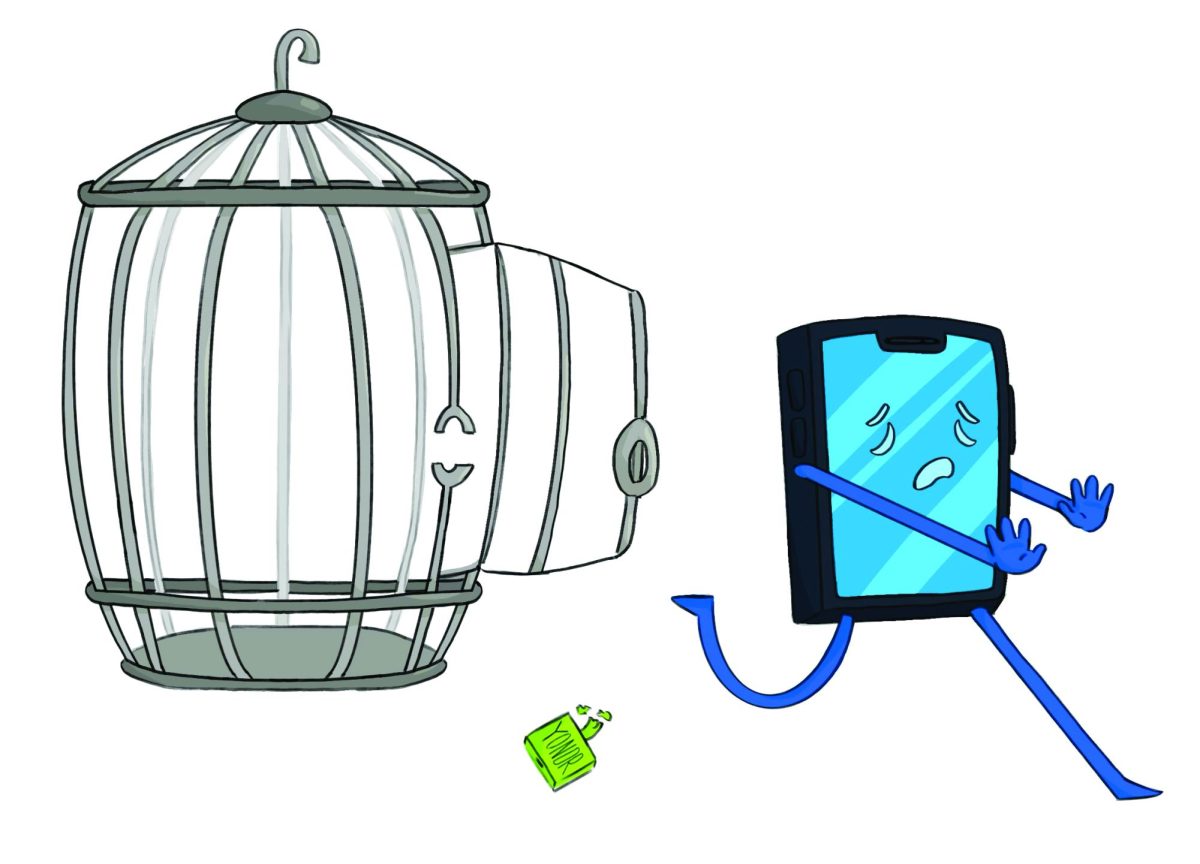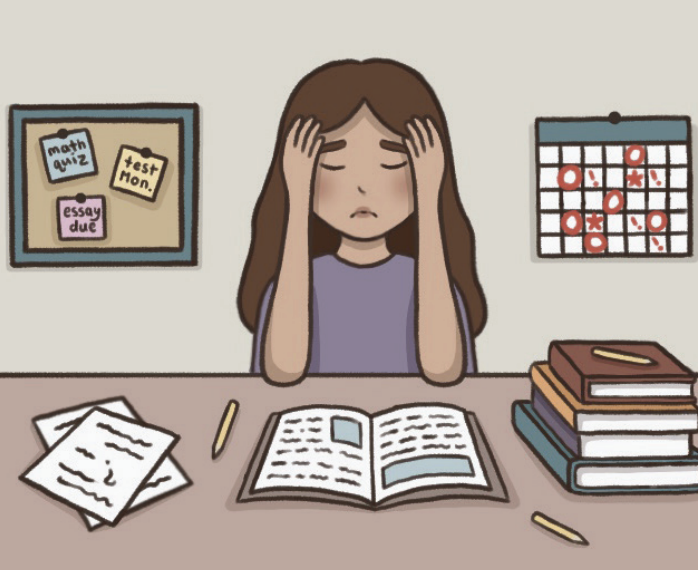Every morning at 8:30, Marlborough students must lock their phones up in a Yondr pouch for the entire school day. Though the Yondr pouch aims to foster presentness, minimize distractions and create a more focused learning environment, it introduces challenges that counteract its intended goal. While I appreciate a phone-free environment in class, I don’t believe Yondr pouches are the best solution.
My first concern is the increase in screen time after school. With phones being locked all day, I spend more time catching up on missed notifications. The pouch creates a buildup of anticipation, leading me to check my phone more once it’s unlocked. Before the phone policy, I used my phone for around two hours daily. Now, it’s the same, just pushed to when I should be doing my work. The problem isn’t solved by taking away our phones. We are still unable to manage our time.
I don’t think that we should lock up our phones entirely. Instead, we shouldn’t have phones in class, but we should get to learn from the choices we make if we choose to spend our free periods on our phones or doing homework.
Secondly, phones are tools, not just distractions. Many of my classes now enforce limited laptop use and most work is done on whiteboards or paper that teachers upload after class. For students who are absent or have to leave class early, this emphasis on printed or written materials makes it harder to share information quickly. Without phones, those who miss class have to spend more time waiting for notes from classmates or uploads for assignments or tests. If we had our phones unlocked, we could simply take photos of the whiteboard and text them to absent classmates.
Finally, phones are also a source of connection. On big tests or presentation days, my mom usually sends me a text wishing me luck. It’s a small gesture, but it helps me calm down. Now, she feels her texts are distractions, so she sends them less often. Similarly, phones are necessary when figuring out where to meet up with friends on campus. The Marlborough campus never feels larger than when I can’t find my friends, but being able to send a quick text would make all the difference. Instead of viewing phones solely as distractions, we should recognize that they’re here to help support us and be a tool we take advantage of.
While I support limiting distractions in class, students should still have access to their phones outside of class. If the goal is to promote focus, the Yondr pouches feel inflexible. Schools in Santa Barbara use a more balanced approach, with phone charts in classrooms where students turn in their phones at the start of class and retrieve them afterward. The system teaches students time management by allowing phones during breaks. The act of being present shouldn’t just be about removing distractions – it should also be about teaching responsibility and balance.





